Should You Keep a Kunekune Pig as a Pet?
Updated on 05/27/24
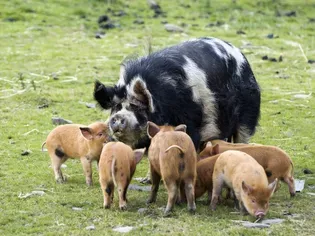
Should You Keep a Kunekune Pig as a Pet?
An Extensive Guide to the Unique and Charming Kunekune
If you're looking for an adorable, intelligent, and affectionate pet, the Kunekune pig may be the perfect choice for you. These charming pigs have captured the hearts of animal lovers worldwide with their endearing personalities and distinctive appearance. However, before you bring one home, it's essential to carefully consider their specific needs and lifestyle requirements. This comprehensive guide will delve into every aspect of Kunekune pig ownership, providing you with the information you need to make an informed decision.
What Makes Kunekune Pigs Unique?
Kunekune pigs (pronounced "koo-nee-koo-nee") are a breed of domestic pig native to New Zealand. They are known for their distinctive appearance, which includes:
* Short, stocky build: Kunekunes are known for their short, round bodies, with the average adult weighing between 300 and 400 pounds.
* Wrinkled skin: Kunekunes have loose, wrinkled skin that covers their entire body, giving them a distinctive appearance.
* Short, curly hair: Kunekunes have short, curly hair that is typically black, brown, or a combination of the two.
Beyond their physical characteristics, Kunekunes are also renowned for their exceptional temperaments:
* Intelligent: Kunekunes are highly intelligent animals that are capable of learning tricks and commands.
* Affectionate: Kunekunes are extremely affectionate and love to cuddle with their humans.
* Gentle: Kunekunes are generally gentle creatures and are suitable for families with children.
Lifespan and Health Considerations
Kunekune pigs have an average lifespan of 10 to 15 years. They are generally healthy animals, but like all animals, they can be prone to certain health conditions, including:
* Osteoarthritis: This condition can affect Kunekunes as they get older, causing pain and stiffness in their joints.
* Obesity: Kunekunes can be prone to obesity due to their love of food. It's important to monitor their weight and provide them with a balanced diet.
* Skin infections: Kunekunes' wrinkled skin can be prone to skin infections, so it's important to keep their skin clean and dry.
Housing and Enclosure Requirements
Kunekune pigs require a spacious enclosure that provides them with plenty of room to roam. The following considerations are essential:
* Size: The enclosure should be at least 10 feet by 10 feet per pig, with additional space for grazing if possible.
* Shelter: Kunekunes need a sheltered area to protect them from the elements. This can be a simple shelter made of wood or a tarp.
* Fencing: The enclosure should be securely fenced to prevent Kunekunes from escaping.
* Substrate: The enclosure should have a well-drained substrate that is easy to clean, such as dirt, gravel, or wood chips.
Diet and Nutrition
Kunekune pigs are omnivores and will eat a wide variety of foods. A balanced diet should include:
* Grazing: Kunekunes love to graze on grass, weeds, and other plants.
* Hay: Hay is an essential part of a Kunekune's diet and should be provided free-choice.
* Pellets: Commercial pig pellets can provide Kunekunes with essential nutrients.
* Fruits and vegetables: Kunekunes enjoy fruits and vegetables as occasional treats.
Grooming and Care
Kunekune pigs require minimal grooming. However, regular brushing can help to keep their skin and coat clean. Other considerations include:
* Hoof trimming: Kunekune pigs' hooves should be trimmed regularly to prevent overgrowth.
* Bathing: Kunekunes can be bathed occasionally, but it's important to use a mild shampoo and avoid getting water in their ears.
* Dental care: Kunekune pigs' teeth should be checked regularly by a veterinarian to prevent dental problems.
Training and Socialization
Kunekune pigs are intelligent animals that can be trained to perform tricks and commands. However, it's important to be patient and use positive reinforcement techniques when training.
Socialization is also essential for Kunekune pigs. They thrive in environments where they have regular interaction with humans and other animals.
Conclusion
Kunekune pigs are charming and affectionate pets that can provide years of companionship and enjoyment. However, before you bring one home, it's important to carefully consider their specific needs and lifestyle requirements. This comprehensive guide has provided you with the information you need to make an informed decision about whether a Kunekune pig is the right pet for you.
Explore More Pets

Exotic Pet Species
Should You Keep a Chimpanzee as a Pet?

Exotic Pet Species
Should You Keep a Raccoon as a Pet?
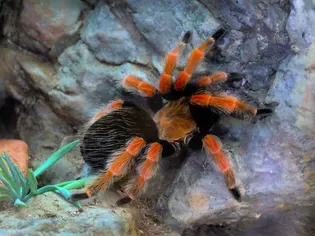
Exotic Pet Species
How to Care for a Pet Mexican Red-Knee Tarantula
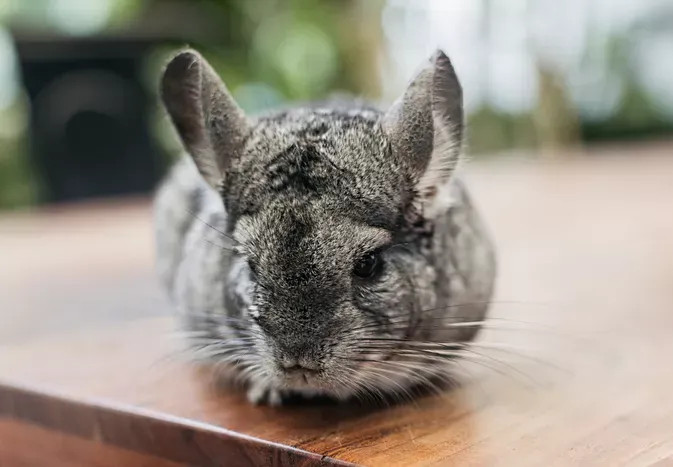
Exotic Pet Species
12 Best Exotic Pets for Apartment Living
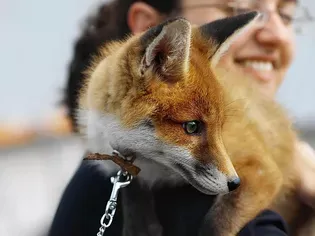
Exotic Pet Species
Best Foxes to Keep as Pets
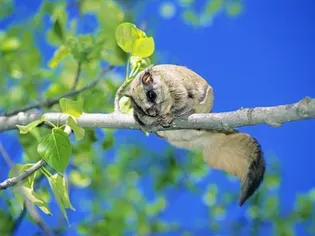
Exotic Pet Species
Should You Keep a Northern Flying Squirrel as a Pet?

Exotic Pet Species
Should You Keep Stick Insect as a Pet?

Exotic Pet Species
Should You Keep a Big Cat as a Pet?
